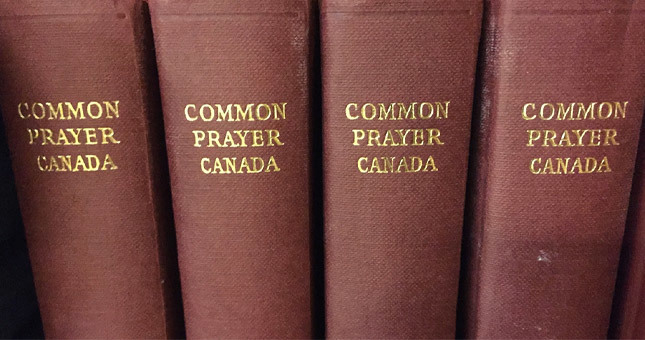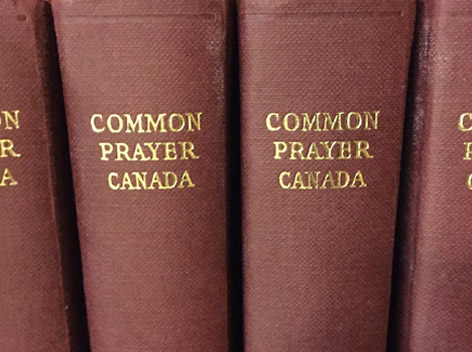
Gift Beyond Measure
The truth is that the first time I worshipped at St. John’s Anglican Church, I was stalking J. I. Packer. On the third visit, there he was, up in front—tall, thin, white hair, long black outfit—kneeling at a little wooden desk, leading the congregation through the service.
That was thirty years ago and the third Anglican service of my life, and what struck me that morning was not Dr. Packer’s sermon or brilliance but that whatever the little red book that he was speaking from was, he held it in his hands like a treasure. He reminded me of a parent reading their favorite childhood book to their firstborn; I wondered if he’d stop mid-sentence and say, “Wait. Listen! I love this next part!”
I soon “borrowed” a little red book from the back of the pew. I have yet to return it.
Over the years Jim Packer became my professor, pastor, and friend, but no gift was greater than leading me by the hand into the spiritual depth and richness of the Anglican Book of Common Prayer (BCP).
I first noticed that Dr. Packer read the liturgy a bit like poetry; there were pauses and cadence, phrases so rich that they stayed in your mind. He’d stop after the “acknowledgement” (usually the second line of a Collect), “whose property is always to have mercy,” or “who art the author of peace and lover of concord”—as if he wanted to make extra sure that this quality of God sank in to his, and my, soul—as if it needed time to be embodied.
At Holy Communion, Dr. Packer was on his knees before the table and he’d begin with the prayer, “Almighty God, unto whom all hearts be open, all desires known, and from whom no secrets are hid.” What surprised me was that he said these words with relieved gratitude in his voice. It was as if he could be freed from hiding, and better yet, as if it was new to him, and us, that very Sunday, that this goodness and truth was astounding! When Jim led the liturgy it was always personal and communal.
Over time he unpacked what he called the “masterly architecture” of Cranmer’s services, showing me (and others) that in Morning and Evening Prayer and Communion, there is a foundational structured sequence of sin, grace and faith undergirding them. Twice in Morning Prayer and three times in the Communion, we move through this triptych. We begin by looking for and confessing our sin (never one without the other), or as Jim said, “we face ourselves.” Secondly, we hear, and tell each other, of the amazing and abundant, grace of God, as stated so widely in the New Testament readings. Thirdly, we offer our faith’s newly-strengthened response to the gospel by saying together the Lord’s Prayer and the Creed, hearing the sermon, giving our tithes and praying for our world. Jim used the analogy that following this sequence three times was like three turns of the screw.
Jim showed me too that the Prayer Book was the “Bible arranged for worship.” Reading it, letting its words sink in, memorizing it by saying it day after day was not in competition to Scripture but like putting it to song. I no longer feel sheepish that I know far more of the BCP from memory than I do of Scripture.
When I occasionally asked him, “Where does this Collect or prayer come from in Scripture?” Dr. Packer would offer chapter and verse, often with a gem of a synopsis of its context in Scripture. Once I asked where I would find the words of the Collect for Grace, and he looked down, tapped his long fingertips together and said something to the effect of, “Start with Matthew 9, then Revelation 11, Psalm 3, Psalm 46, Psalm 64, and Matthew 11.”
When difficulties rocked my life, Jim showed me Cranmer’s pastoral heart and intent in the Prayer Book, smoothing the way for God to become my shepherd and comforter. Before this liturgy coloured my devotions, God’s comfort felt nice but shallow, too widespread to be of personal effect. Prayers such as “Be Present, O merciful God, and protect us through the silent hours of this night, so that we who are wearied by the changes and chances of this fleeting world may rest upon your eternal changelessness” (which I can hear him saying aloud) pulled God in close. They remain my steadying companion; I say that prayer most nights before bed.
As I came to know the Anglican liturgy more thoroughly, Jim encouraged me to say Morning and Evening Prayer by myself at home. One afternoon I got up the courage to ask him if I could even say the Absolution of my own sin to myself. Was that even possible? “Yes, you can, and indeed need to,” he answered.
It has been nearly five years since Dr. Packer has led the liturgy at our church and now when I miss him, I think of him seeking out Cranmer’s company in Heaven, thanking his predecessor for his fine work, for his courage, and for all the times he pastored Jim—and I think of Cranmer thanking Jim.


